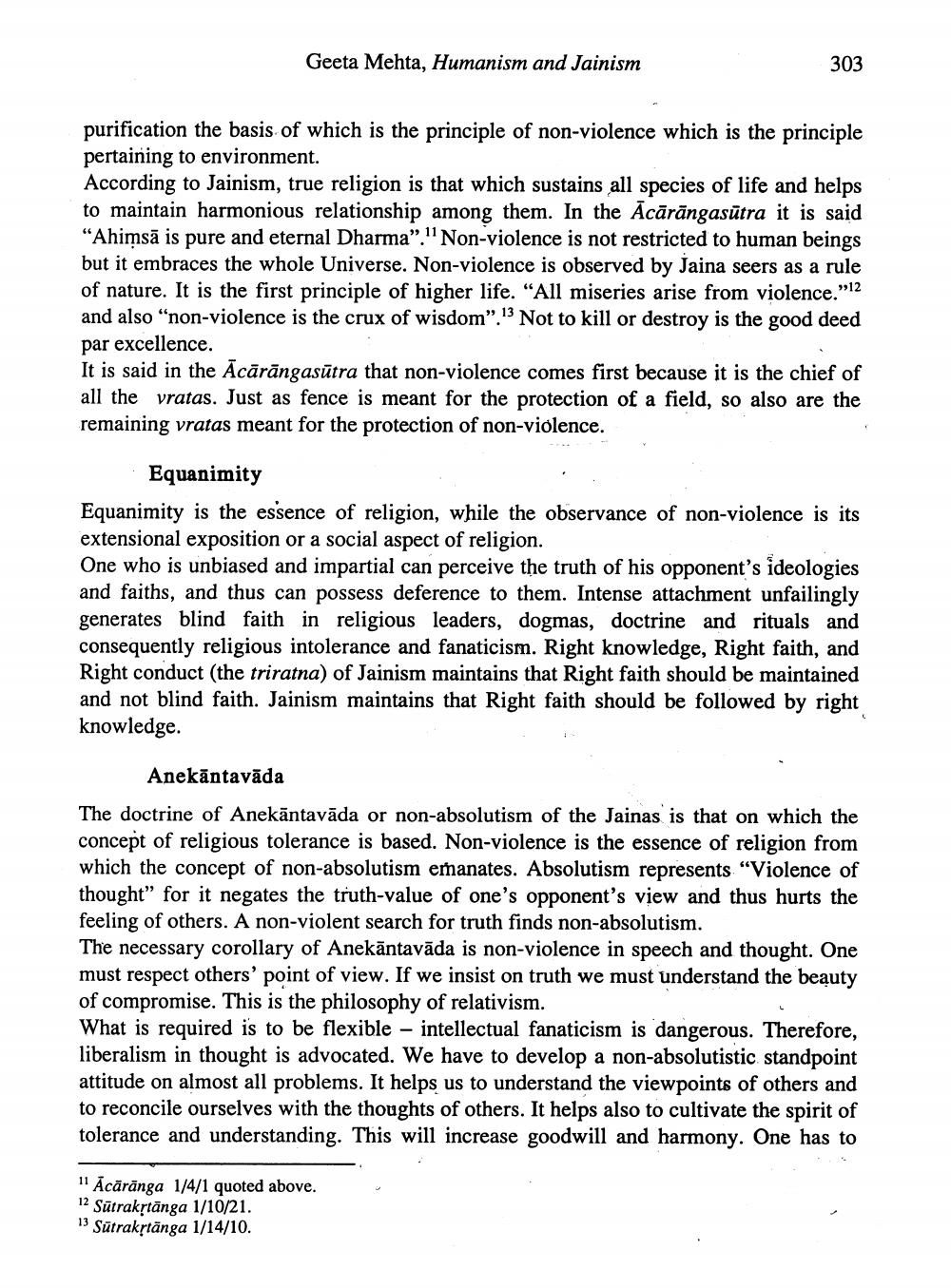________________
Geeta Mehta, Humanism and Jainism
303
purification the basis of which is the principle of non-violence which is the principle pertaining to environment. According to Jainism, true religion is that which sustains all species of life and helps to maintain harmonious relationship among them. In the Acārāngasūtra it is said "Ahimsā is pure and eternal Dharma". Non-violence is not restricted to human beings but it embraces the whole Universe. Non-violence is observed by Jaina seers as a rule of nature. It is the first principle of higher life. "All miseries arise from violence.":12 and also "non-violence is the crux of wisdom”. 13 Not to kill or destroy is the good deed par excellence. It is said in the Ācārāngasūtra that non-violence comes first because it is the chief of all the vratas. Just as fence is meant for the protection of a field, so also are the remaining vratas meant for the protection of non-violence.
Equanimity Equanimity is the essence of religion, while the observance of non-violence is its extensional exposition or a social aspect of religion. One who is unbiased and impartial can perceive the truth of his opponent's ideologies and faiths, and thus can possess deference to them. Intense attachment unfailingly generates blind faith in religious leaders, dogmas, doctrine and rituals and consequently religious intolerance and fanaticism. Right knowledge, Right faith, and Right conduct (the triratna) of Jainism maintains that Right faith should be maintained and not blind faith. Jainism maintains that Right faith should be followed by right knowledge.
Anekāntavāda The doctrine of Anekāntavāda or non-absolutism of the Jainas is that on which the concept of religious tolerance is based. Non-violence is the essence of religion from which the concept of non-absolutism emanates. Absolutism represents "Violence of thought" for it negates the truth-value of one's opponent's view and thus hurts the feeling of others. A non-violent search for truth finds non-absolutism. The necessary corollary of Anekāntavāda is non-violence in speech and thought. One must respect others' point of view. If we insist on truth we must understand the beauty of compromise. This is the philosophy of relativism. What is required is to be flexible – intellectual fanaticism is dangerous. Therefore, liberalism in thought is advocated. We have to develop a non-absolutistic standpoint attitude on almost all problems. It helps us to understand the viewpoints of others and to reconcile ourselves with the thoughts of others. It helps also to cultivate the spirit of tolerance and understanding. This will increase goodwill and harmony. One has to
11 Ācārānga 1/4/1 quoted above. 12 Sūtrakstānga 1/10/21. 13 Sūtrakstānga 1/14/10.




